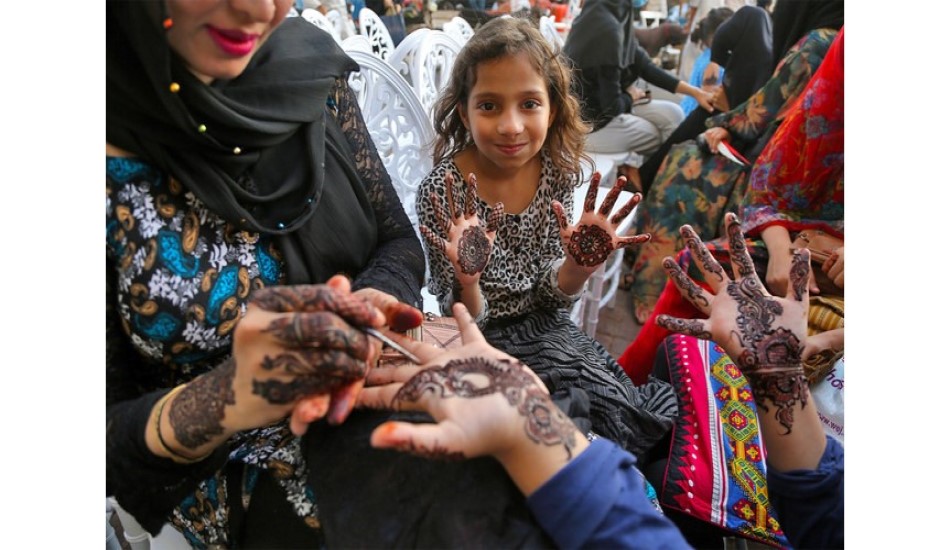Despite attempts by enemies to pollute Pakistan’s reputation, the country and its citizens have shown through various peace initiatives that they support peace and stability, even in challenging circumstances, at both regional and global levels.
Pakistan has seen many ups and downs since its formation.Pakistan is a populous country with a significant global role, particularly in the Muslim world.Despite starting from scratch, Pakistan has built a political system and took up on a challenging journey of nation-building. In spite of internal challenges and disintegration in 1971, Pakistan continues to strive for a prominent role in regional and global politics.
Pakistan’s Strategic Location
The stability of Pakistan holds great importance for the future of South and Southwest Asia in today’s world. Pakistan is situated in a crucial location, with a shared border with Afghanistan, China, Iran, and India, and a small strip separating it from the USSR.Pakistan has significant strategic importance due to its control over the Khyber Pass, a historic land route that has been used for invasions in the past. In addition, the newly constructed Karakoram Highway connects Gilgit with China’s Xinjiang province, and Pakistan provides access to the Gulf and the Indian Ocean from the North. Given the revolution in Iran and the Communist rule leading now to Islamization in Afghanistan, it would be unwise to ignore the strategic importance of Pakistan.
Challenges
Pakistan is a strong supporter for peace and has actively participated in international efforts to promote stability. The country condemns all forms of violence, having experienced the negative consequences of religious extremism and terrorism. Despite these challenges, Pakistan remains committed to working towards a brighter future for all.
Pakistan has faced geographical challenges due to its location and neighboring countries. Despite being surrounded by hostile environments on both its Eastern and Western borders, Pakistan remains committed to working towards regional peace. Despite big power rivalries and proxy wars by other regional powers, the nation remains determined to move forward towards stability and cooperation.
In contrast to maintaining peace, Pakistan is also facing non-conventional challenges such as Climate Change, Extremism, International Lawlessness, Corruption, Drugs, and Firearms. Pakistan expects Regional Cooperation from all South Asian countries so that the people here feel protected, unlike the West, as all these Challenges are not Regional rather, they have affected people and countries Globally.
United Nation’s Perspective
Pakistan is a significant contributor to UN peacekeeping missions, with its efforts being recognized by the UN on multiple occasions. Ban Ki-moon, former UN Secretary General, himself acknowledged Pakistan’s contributions, stating that they’re impossible to ignore when discussing the history of UN peacekeeping. The country has a strong stance on peaceful conflict resolution and preventing violence escalation, which has been widely appreciated.
Pakistan has contributed in almost 41 UN Peacekeeping Missions in 23 different countries as well as it has the 2nd highest number of soldiers that have been deployed in different UN Missions.
Regional Peace Building Efforts-
Pakistan and India:
When it comes to India, history is evident that establishing Peace and resolving Conflicts (Kashmir being at the top of the list and Globally considered the Most dangerous conflict) has always been difficult and challenging but rather not an impossible one. Pakistan, however, has always taken the First Step forward in starting Dialogues and maintaining peace. On the other hand, India often a times shows zero interest in resolutions through dialogues.
India’s refusal to negotiate on conflicting disputes has therefore resulted in the ineffectiveness of a regionally formed platform SAARC South Asian Association for Regional Cooperation. Tensions and disputes between India and Pakistan have hence played an adverse role in the road to social, political, and economic progress of SAARC. Therefore, problems between the two need to be resolved just in manner to regain the functionality of SAARC and consequently, establish regional peace and stability.
In contrast to India, Pakistan has always been appreciated when it comes to taking decisions in times of crises. Whether it be, opening the doors of Kartarpur for Indian Sikhs or the abruptly and safely handing over of Abhi-nandan, the Indian Pilot.Heretofore, Pakistan has always been applauded for showing political maturity regarding peaceful co-existence of both nations.
Pakistan and China:
Globally, Pak-China friendship is assumed to be a mere geographical and political one, whereas both share a historical mutual connection and together support peaceful coexistence, non-aggression, economic development, and justice around the world. Both countries strive together to eliminate unfair and unjust International Order.
Pakistan has an active role in the Belt and Road Initiative (BRI), that intents to bring countries that are far apart closer economically thus supporting the yet developing countries. Pakistan plays a significant role in regional cooperation through China – Pakistan Economic Corridor(CPEC).
Unfortunately, the BRI and projects like CPEC have lately been a target of US – China political rivalry. As many countries have planned to benefit from BRI, China is therefore considered a much bigger and stronger trading partner than the US for the future of World Economy.Hence, Pakistan has a huge responsibility on its weak economic shoulders to protect the Indo-Pacific region from a probably emerging Cold War that could disrupt the whole World Order. The Tug-of-War for Balance of Power between the two superpowers, China and the US, could end up in the instability across the region.
Pak-China relationship is a non-negotiable one, CPEC being a huge opportunity and yet a breakthrough for the Economic Development of Pakistan. Therefore, Pakistan has always aspired for friendly ties with both superpowers. In addition, Pakistan also hopes for US to comply with accordance to its Foreign Policy of Regional Association and Economic Development through Cooperation.
Pakistan and Afghanistan
With respect to Afghanistan, Pakistan has consistently cooperated in establishing peace as Afghanistan’s stability is directly correlated to Pakistan’s stability. Pakistan has actively participated in building peace both regionally and it has also engaged the international community in considering Afghanistan in their list for humanitarian and relief aid at times of severe poverty and chaos.
Post-withdrawal of US troops from Afghanistan has had a positive as well as negative impact on Pakistan. Both countries got an opportunity to develop political and economic ties with each other whereas, on the other hand, Pakistan is yet facing and coping with security threats and acts of terrorism from groups like TTP and militants across the western borders.
Pakistan’s visionary approach for a peaceful neighborhood has therefore led it to build strong ties with regional countries and thus as for Afghanistan, peace related dialogues and economic development through bi-lateral trade relations has always been Pakistan’s priority.
For ensuring regional stability, Pakistan has played a vital role in hosting several meetings and negotiations between the US and the Taliban.Moreover, has upfront strived and supported Afghanistan in its stabilization process whether it be cultural, economic, medical or educational development.Generally, Pakistan’s foreign policy with Afghanistan has its main focus on establishing peace and stability in the region by connecting the lost links.
Pakistan and Iran:
Iran and Pakistan have a common border that spans over 900 km, and they share various interests related to culture, religion, and geopolitics. Their bilateral relationship involves many issues, including the situation in Afghanistan, the transportation routes, the smuggling of drugs, weapons, and people, the refugee crisis, the fight against terrorism, the unfinished gas pipeline project, and their connections with China.
Iran and Pakistan are concerned about the security situation in Afghanistan due to their shared border with Taliban. Recent conflicts have strained relations, and the Taliban’s support of the TTP has raised security concerns in Pakistan. Cooperation between Tehran and Islamabad is crucial with the potential for terrorist groups to operate in the region.
Iran and Pakistan need to address trust issues and sanctions to improve their relationship. They can enhance trade by improving infrastructure and payment methods. To address smuggling and human trafficking, they need to establish a task force. Completing the Iran-Pakistan Gas Pipeline and cooperation in science and technology is crucial for relations to flourish.
Therefore, lately, Pakistan has been working on creating its own gateways instead of waiting for global events to create opportunities for the sake of stability on regional level, when it comes to Iran.The aftermath of 9/11 affected Pak-Iran relations with each other as well as other countries. However, Pakistan didn’t allow the US to use its facilities against neighbors, including Iran. Pakistan had been aware of the fact that confrontation between the two would never benefit Pakistan but rather negatively affect the peace and stability in the region. Therefore, both countries should promote bilateral cooperation and mutual trust as both face terrorism.
Conclusion
Pakistan has been actively participating in several international organizations, including ECO, OIC, and SCO. The recent hosting of the OIC meeting by Pakistan is a clear indication of their dedication towards promoting multilateralism and should not be overlooked.Pakistan strongly believes in the importance of promoting peace and taking decisive action to combat violence and terrorism. The country’s commitment to defending its borders and at the same time maintaining good relations with all nations is admirable.The country’s approach to engaging with other nations with respect for international norms and traditions is also a positive step towards promoting stability, trust, and peace.
This article is written by Sana Kashif who is intern at Perspective.pk.


[…] and Alien Registration Certificate (ACCs) only offers a temporary rationale for remaining in Pakistan. These documents do not grant refugees access to important services such as education, healthcare, […]
[…] forward for resolving their disputes and enhancing connectivity and trade in the region. To enhance Pakistan-India relations through the SCO, both countries must prioritize dialogue and cooperation, focusing on resolving […]